No more concurrent Indonesia national and local elections: Political parties wary but experts laud move
The hope is that national issues will not overshadow regional issues, and political parties will have enough time to prepare their candidates, the constitutional court says in a landmark ruling.
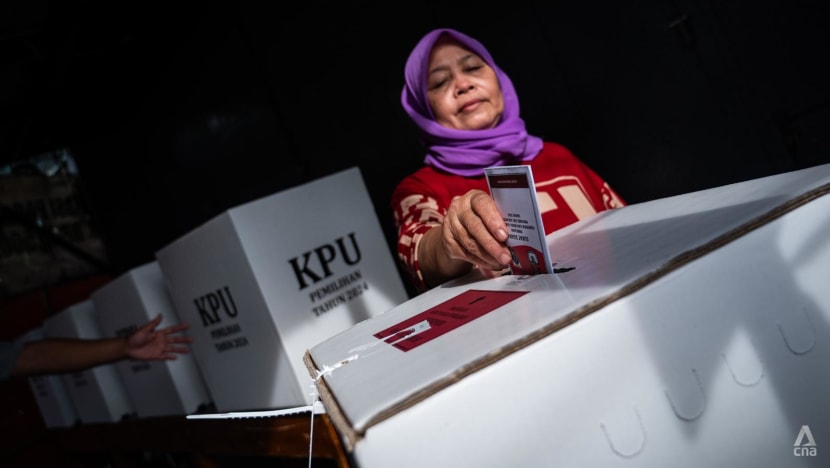
A woman inserts her ballot paper for the Jakarta gubernatorial election on Nov 27, 2024 at a polling station in Jembatan Lima, West Jakarta. (Photo: CNA/Wisnu Agung Prasetyo)

This audio is generated by an AI tool.
JAKARTA: Indonesia’s recent Constitutional Court ruling that the national and regional elections must be held separately from 2029 is a boon for democracy and will elevate the importance of local issues, but could pose some challenges to political parties, stakeholders and observers told CNA.
On Jun 26, the Constitutional Court decided that from 2029, national and regional elections would be held two to 2.5 years apart – unlike in 2024 and 2019, when five types of elections were held simultaneously.
In last year’s presidential and legislative elections on Feb 14, Indonesians cast five ballots to select a presidential and vice-presidential pair, members of the House of Representatives, Regional Representative Council and Regional Legislative Council at the provincial, and the municipal or regency level.
The country voted again in local elections on Nov 27 last year to elect 37 governors, 93 mayors, and 415 regents.
The Jun 26 ruling means that in 2029, Indonesians will vote for the presidential and vice-presidential pair, as well as members of the House of Representatives and Regional Representative Council, as currently scheduled.
But the two ballots for Regional Legislative Council posts will be cast at least two years later – that is, in 2031 – during elections to vote for local leaders such as governors, mayors and regents.
The decision was to ensure the quality of the Indonesian elections and to simplify the voting process, said Judge Arief Hidayat of the Constitutional Court, which was ruling on a judicial review filed by the non-governmental organisation Association of Elections and Democracy (Perludem).
Deputy Chairman of the Constitutional Court Saldi Isra added that the ruling will prevent voter fatigue, which many experienced during the simultaneous election last year.
“The voters’ focus is divided as they need to choose too many candidates at the same time … This condition, whether one realises it or not, leads to a decline in the quality of the election,” said Saldi.
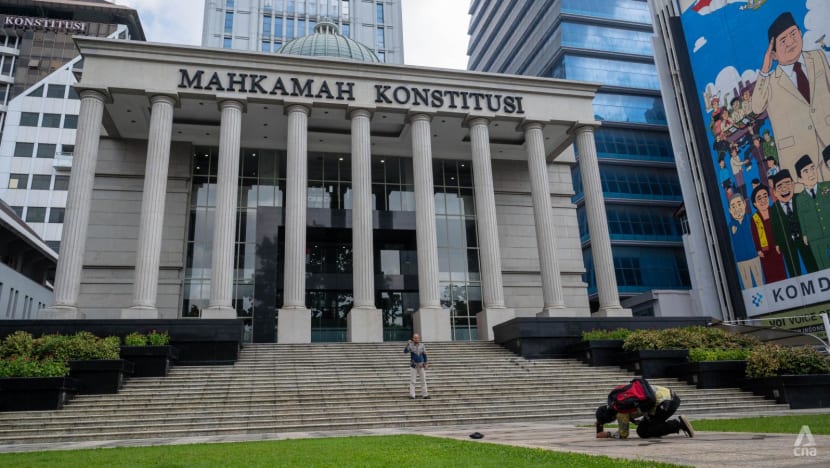
The judges also hoped that with the new arrangements, national issues would not overshadow regional issues, and political parties would have enough time to prepare their cadres.
Indonesia first held simultaneous elections in 2019 to enhance the efficiency and effectiveness of its elections and provide voters with the convenience of exercising their voting rights at one go.
This was in response to a 2017 revision to the General Elections Law as policymakers argued at the time that holding elections on separate timelines kept the country in near-constant campaign mode.
However, simultaneous elections placed a physical and mental burden on poll workers, with hundreds of them dying in 2019 and 2024 due to exhaustion.
Perludem filed a judicial review last year, demanding that the presidential election and regional election be held two years apart to ensure better elections.
LOCAL ISSUES CAN “RECEIVE ATTENTION THEY DESERVE”
Political analysts believe the change paves the way for a more precise separation of national and regional electoral cycles, and will give regional elections greater prominence.
“This will allow local issues to stand on their own. Under the simultaneous election format, national campaigns, especially the presidential race, dominated the conversation, sidelining local concerns,” said Ray Rangkuti, director of Lingkar Madani think tank, which focuses on safeguarding democracy and assessing policies.
“By decoupling the elections, local issues can emerge independently and receive the focused attention they deserve.”
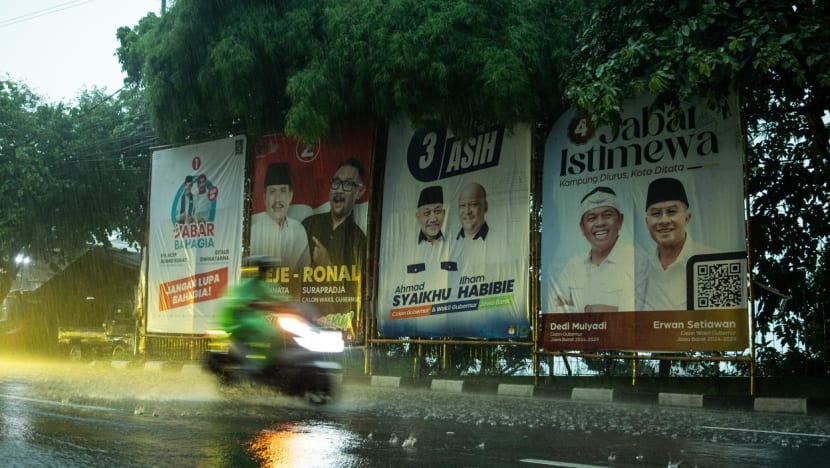
Also welcoming the Constitutional Court’s decision was Agung Baskoro, executive director of political think tank Trias Politika Strategis.
The separation of national and regional elections provides much-needed clarity for voters, he said.
“When both elections were held simultaneously, the public’s attention was overwhelmingly drawn to the presidential race, leaving local electoral agendas neglected and under-examined,” Agung said.
“With this separation, voters can now better scrutinise the track records of legislative candidates, both at the national and regional levels, within their respective constituencies, something that has often been overlooked in previous elections.”
He added that for legislative candidates, the new arrangement allows for deeper preparation and a less rushed campaign.
Political parties also gain more flexibility and time to carefully vet and select candidates for local parliaments and regional leadership posts.
The separation of local and national elections could help ease the long-standing logistical burdens that often arise during simultaneous elections, such as the distribution and printing of ballot papers, the preparation of ballot boxes and other technical challenges, he added.
“We must remember that Indonesia is an archipelagic country, where distance remains a constant logistical obstacle. By separating the elections, these burdens can be reduced,” said Agung.
“Election officials themselves would also be able to focus their energy more effectively, with less fatigue, fewer casualties due to overwork, and potentially lower costs.”

The ruling is unlikely to drastically reshape the national political map, except at the local level, said Lingkar Madani’s Ray.
“In regional legislative elections, party performance will continue to rely heavily on the popularity of the regional executive candidates they endorse,” he said.
“The overall political dynamics may still resemble those of simultaneous legislative and presidential elections, where party votes are often influenced by the appeal of top-ticket figures through coat-tail effects.”
The performance of the sitting president will continue to play a role, he added.
An unpopular leader could weaken support for the ruling party and its candidates at the local level, especially in regions where the presidential approval is already low.
This dynamic mirrors the mid-term elections in the United States, which often serve as a referendum on the incumbent party in the White House, said Ray.
But Agung from Trias Politika Strategis said the political system in Indonesia is different from that of the US.
“Indonesia’s electorate still largely consists of lower to middle-income voters, whose decision-making often remains semi-irrational,” said Agung.
“Beyond programmes, policies, and track records, other factors such as personal behaviour, speech, ethnicity, religion, and race still play a critical role in shaping voter preferences,” he said.
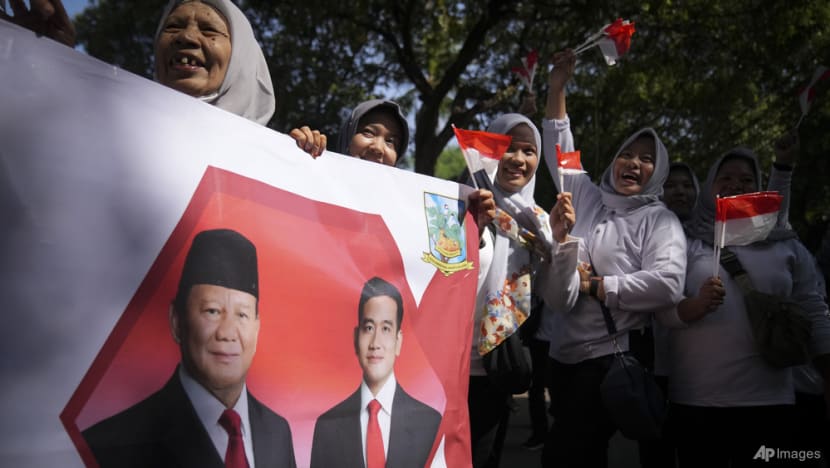
PUSHBACK BY PARTIES?
Some political parties have so far expressed unease, stoking observers’ concerns that they could try to undermine the court ruling.
One party, the National Democratic Party, has rejected the court’s decision.
The House of Representatives held a hearing and public consultation on the ruling last Friday (Jul 4), giving the floor to some invitees who were critical of the change, reported news outlet Jakarta Post.
For instance, former law minister and Constitutional Court judge Patrialis Akbar, who was previously convicted of bribery, reportedly backed the concerns of some lawmakers and questioned if the ruling contradicts the constitution, which stipulates presidential and legislative elections must be held every five years.
A political party representative flagged the same concern to CNA.
Muhammad Khozin from the National Awakening Party (PKB) argued that the Jun 26 ruling does not eliminate problems related to holding simultaneous elections, but could add complexity to the problem.
With the tenure of local parliament members lasting only until 2029, who will fill the positions if local elections are held only in 2031, he questioned.
Parties are also still studying the decision, which will likely entail a bigger budget to participate in future elections.
“For example, in the context of party strategy, almost all parties at the moment implement a tandem strategy when campaigning,” said PKB’s Muhammad.
He was referring to a party’s candidates at all levels making use of the same campaign strategy, which allows them to use the same campaign billboards, for example, saving costs.
“When the election is held simultaneously at the national and regional level, it will minimise costs because the issues brought over are the same. But how will it be moving forward?” he asked.
Budi Sulistyono from the Indonesian Democratic Party of Struggle (PDI-P) – Indonesia’s largest political party – said the ruling will give it more time to prepare its members for future elections.
“It's easier for the party because it means the party can focus on the presidential election first and then on the regional election, so that in the end the cadres in the regions also have more autonomy,” Budi told CNA.
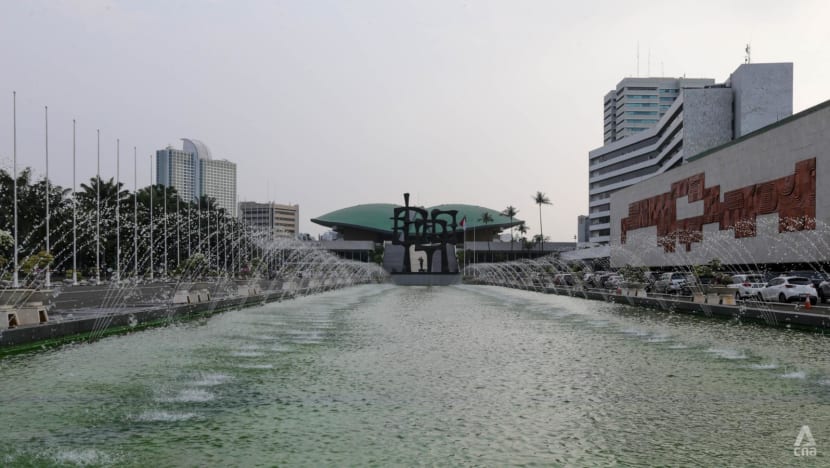
Party members will also be more focused on campaigning for local issues they believe in, he added.
Eddy Soeparno from the National Mandate Party (PAN) concurred.
He said that one of the advantages of holding national and regional elections in different years is that local issues can be addressed in a focused manner.
“They will not be sidelined by national issues because the election is held separately,” Eddy told CNA.
Parliament must now develop a new set of regulations, including the regional elections law, the general elections law, and the regional governance law, said analyst Agung.
Besides having new laws, Agung said the separation of elections will require the appointment of interim officials to fill regional leadership vacancies after 2029.
“Should they be replaced by the next-in-line legislative candidates who were not elected, or will their terms be extended? These are crucial legal and political questions that now require urgent resolution,” said Agung.





















